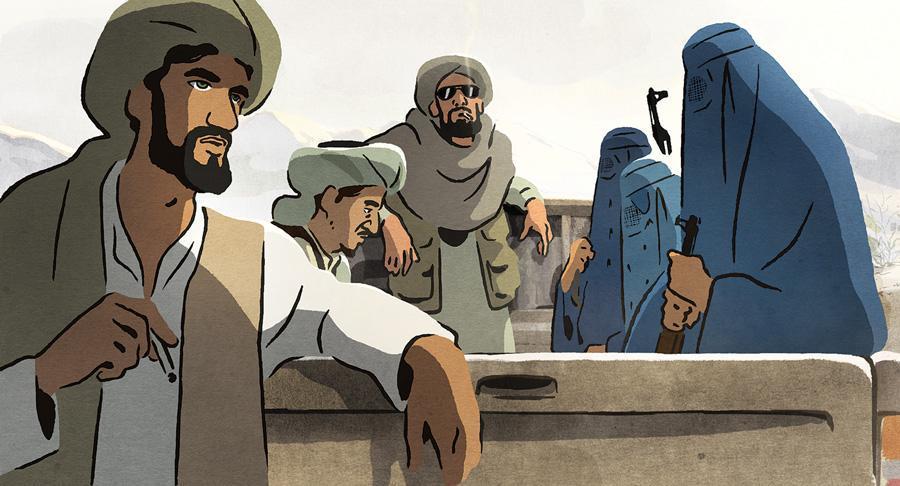
The Swallows of Kabul
The 72nd Cannes Festival opened this week with a disappointing ‘Zombie’ picture, “The Dead Don’t Die” of the American indie director, Jim Jarmusch. Despite some of its laughable scenes, the pic added nothing new to the “genre,” which is mostly used as a metaphor to criticize the consumer society of today.
Now, as the festival reaches the halfway point, we face a couple of interesting pictures, many of them with strong political content. The best film we have seen so far is a debut feature called “Les Miserables.”
Director Ladj Ly, a Frenchman of African origin, chose a tough estate near Paris, Montfermeil, as the setting for this contemporary drama. The title, “Les Miserables,” refers to the novel by Victor Hugo, who lived and wrote the book in the same quarter of Paris where Ly spent his childhood.
“Les Miserables” displays the confrontation between residents of the quarter (including drug dealers and Islamist groups) and the three members of the “Anti-Crime Squad” (with a racist figure at the center). This is an ambitious attempt to portray the good and the bad faces of humanity, through the characters of the story.
“Les Miserables” show the tensions within French society, despite efforts to integrate the foreign residents.
Of course, this is not only a feature of French society but a universal problem. People, who suffer in countries having economic and political problems, try to find salvation in the “civilized” West.
“Atlantics,” another French film by Mati Diop, the first black female director ever chosen to compete in Cannes, deals with the emigration issue from the African point of view.
The story takes place in Dakar, where workers stay unpaid in a huge tower construction. Their only hope is to find a new life in a new land, and many of them lose their lives in the ocean. The film tries to combine political commentary and the supernatural, choosing the style of “magical realism.”
The same approach applies to the Brazilian pic, “Bacarau,” of Kleber Mendonça Filho and Juliano Dornelles. Situated at the poor village of Bacarau in the country’s northeast corner, the film depicts the revenge of the native villagers against a group of American visitors and a guy nicknamed “Nazi,” who organizes a “killing game” in the region. This can be read as a metaphor for American imperialism, which deprives the native people of their land.
The misery of the people exists not only in poor countries but everywhere in the world. Ken Loach, whose compassion for the poor and oppressed is widely known, tells again a dramatic story of a family living in difficult conditions in his latest pic, “Sorry We Missed You.”
But this time his main character does not belong to the proper working class. He is a self-employed person, who signs a franchise to drive a van carrying parcels to be delivered at precise times. This is an inhuman life, with 14 working hours. His wife is also working freelance, caring for old and sick persons, and the family has no time to spend together. Through this story of this young couple and their children, Loach shows that this type of work is just another kind of human exploitation, through this very well written and acted drama.
Lastly, I want to point out a beautiful French animation, “The Swallows of Kabul,” shown in the A Certain Look section of the festival.
The film tells the story of a couple living in Kabul during the Taliban rule. The storyline, adapted from a novel by Yasmina Khadra, not only depicts the violence of the regime and the oppression against women, but also underlines the beauty of human solidarity.
“Do you think we will ever hear music again in Kabul?” asks one of the characters. It is not possible to stay unmoved after watching all these films about the human condition. But, despite all the misery around the world, there are swallows everywhere who care for human dignity and who fight for freedom.